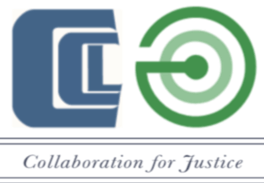Support for Changes to Chicago’s Vehicle Impoundment Ordinance

We must not fund our courts, nor our government, through systems of fines and fees that present a disproportionate burden to our economically vulnerable community members.
Reducing punitive fines and fees and restructuring enforcement mechanisms to relieve burdens on the most economically vulnerable is a focus of both the Access to Justice and Civil Liberties committees of Chicago Appleseed and the Council of Lawyers. We have appreciated the work by the City of Chicago in the last year to improve systems of enforcement debt and end the cycles of poverty they cause. The passage of the License to Work Act; City Clerk Anna Valencia’s Chicago Fines, Fees & Access Collaborative; and – during the shelter-in-place orders of the pandemic – the Mayor’s effort to eliminate disparate ticketing in poor and Black neighborhoods for nonmoving violations have worked simultaneously to make debt forgiveness and license reinstatement procedures more accessible. Now, Mayor Lightfoot has proposed changes to Chicago’s vehicle impoundment ordinance.
The Transit Table Coalition, of which Chicago Appleseed and Chicago Council of Lawyers are members, was invited to offer commentary on the proposed reforms. The changes to the vehicle impoundment ordinance build on the understanding that existing enforcement mechanisms disproportionately impact low-income, Black, and Brown communities. Many of these improvements include reforms that the Civil Liberties Committee of the Chicago Council of Lawyers and Chicago Appleseed have advocated, including: adding an innocent owner defense; eliminating vehicle impoundment for non-driving violations; reducing fines; and capping vehicle storage fees.
The innocent owner defense is particularly welcome and protects owners not present at the scene of an alleged crime and owners not legally accountable nor aware of alleged crimes [Section 2-14-232(5)]. Additionally, the proposed ordinance calls for the immediate release of the vehicle if the City nonsuits, or if an administrative law officer dismisses all of the alleged offenses for which the vehicle was impounded and states the owner shall not be subject to any penalty or fee associated with the impoundment [9-92-080(g)].
We believe, however, that the proposed reforms leave room for greater, more deliberate strides toward equity and fail to fully end the practice of regressive funding through fines and fees on the most economically vulnerable people.
While the proposed ordinance acknowledges a goal to “stop impounding cars for offenses that are not related to public safety,” it does not end “scofflaw” type impoundments, where compliance ticket debts lead to boots and then to tows—a top priority for the Transit Table. Although the Chicago’s private parking meter contract hamstrings the city, we believe it does not prevent the city from ending ticketing and booting for violations unrelated to parking meters.
Reductions in fines throughout the entire ordinance represent the kind of necessary and bold progress Chicago Appleseed, Chicago Council of Lawyers, and the Transit Table Coalition support, but we do not believe reduction alone is sufficient. No law nor rule should limit or prohibit a judge’s ability to waive or reduce any fine. A full waiver of these fines, court costs, and other fees should be readily available and easily accessible to people for whom payment may cause a financial hardship. Fines should be calibrated to reflect the financial circumstances of the individual ordered to pay, so that the fines do not result in substantial and undue hardship to the individual or their dependents.
It serves no legitimate or logical purpose to impose fines or fees which a person will never have the ability to pay. Therefore, “ability to pay” must be considered at each stage of proceedings—including at the time fines are originally imposed and before any sanction for nonpayment, such as additional fees, probation revocation, issuance of an arrest warrant for nonpayment, or incarceration.
Chicago Council of Lawyers and Chicago Appleseed are proud of the work the Transit Table does and honored to be part of the open dialogue with Office of the Mayor, which moves our work forward. The proposed ordinance goes before the Committee on Pedestrian and Traffic Safety in mid-July.
Members of the Transit Table Coalition include: ACLU of Illinois, Chicago Appleseed & Chicago Council of Lawyers, Chicago Jobs Council, Chicago Urban League, Community Organizing and Family Issues, Employment & Employer Services, Growing Home, Heartland Alliance for Human Needs & Human Rights, Illinois Asset Building Group, Jane Addams Resource Corporation, North Lawndale Employment Network, and the Woodstock Institute.
